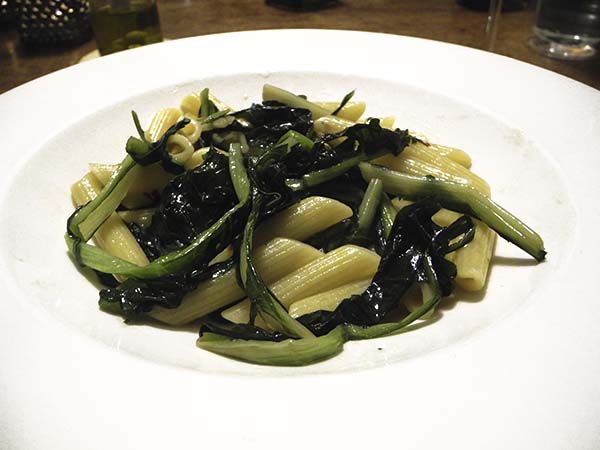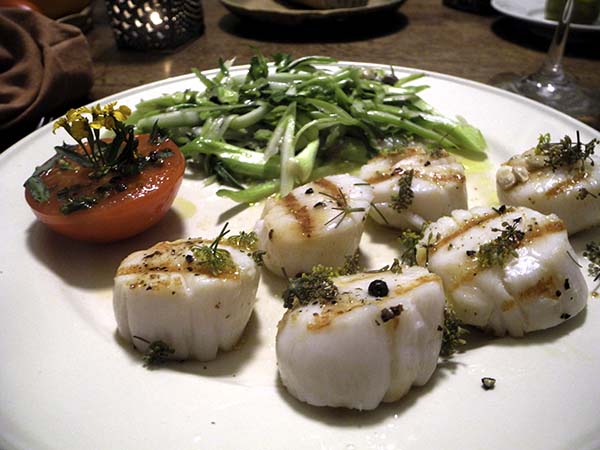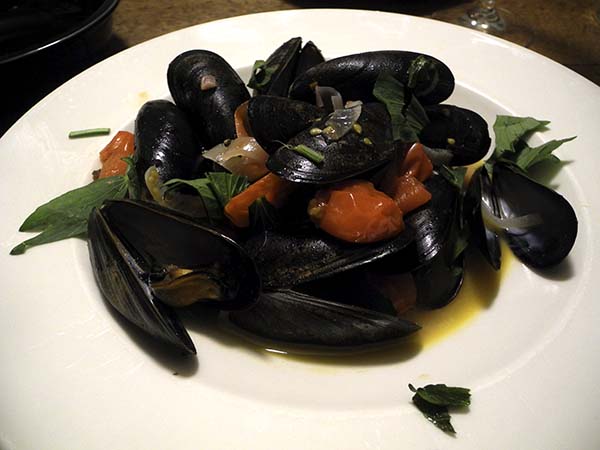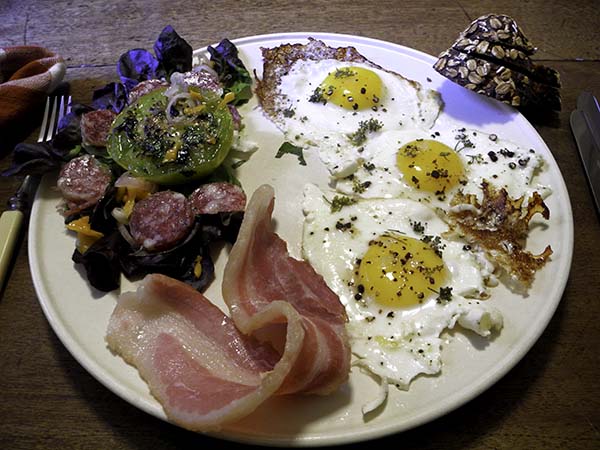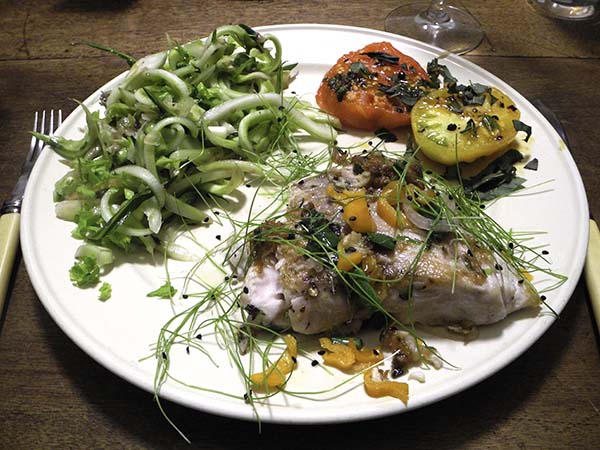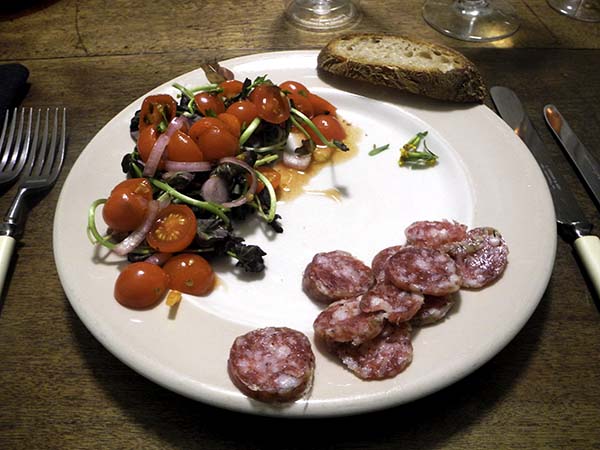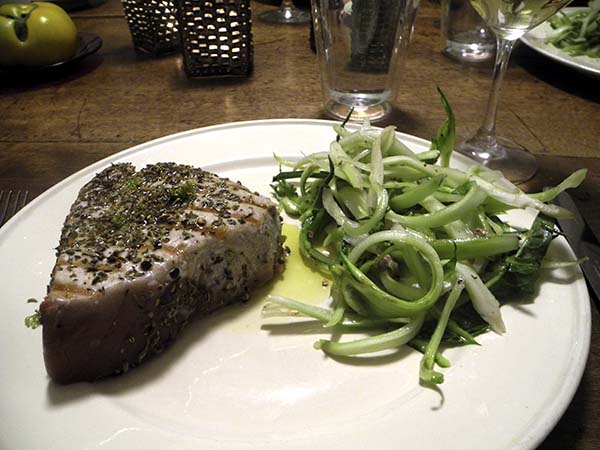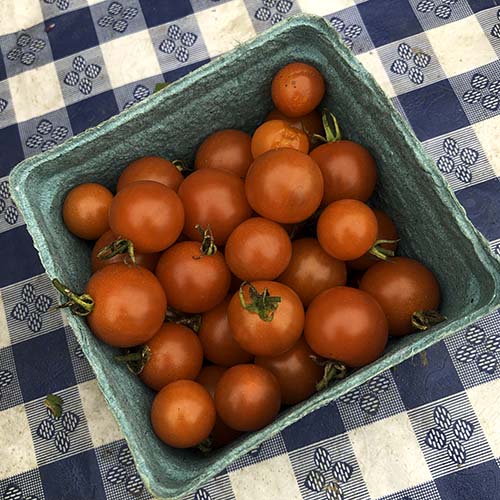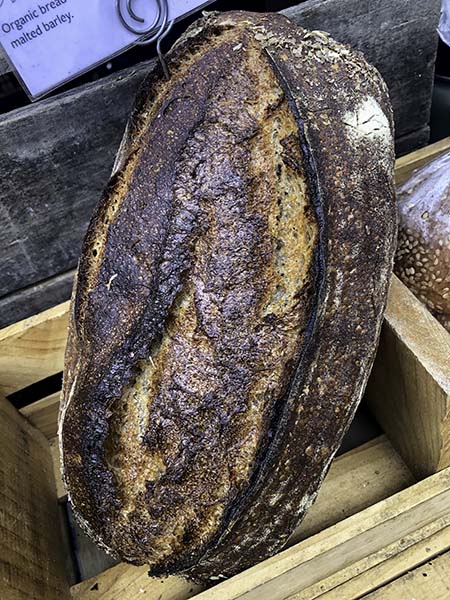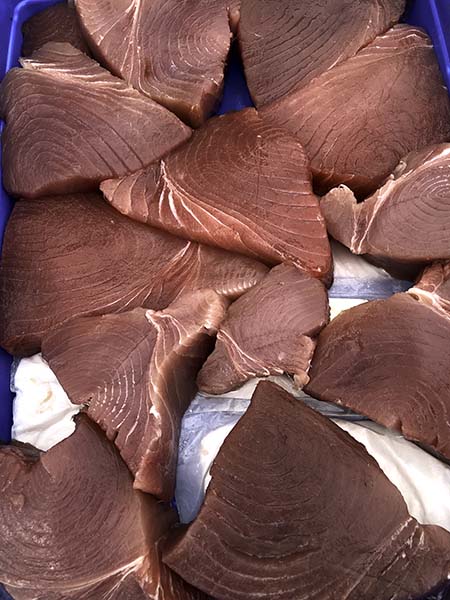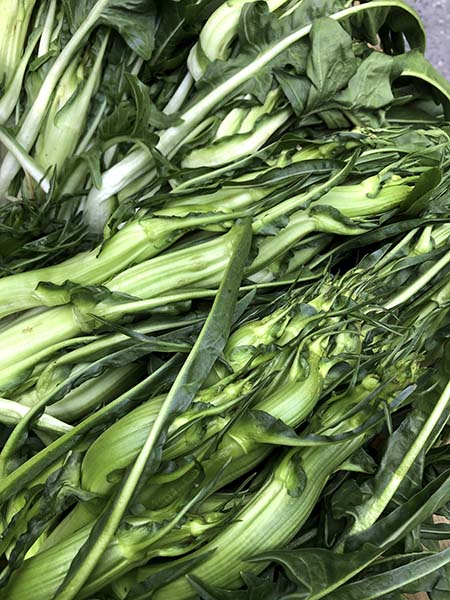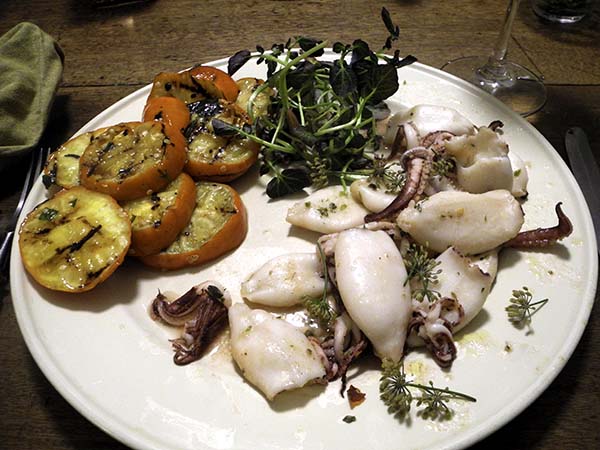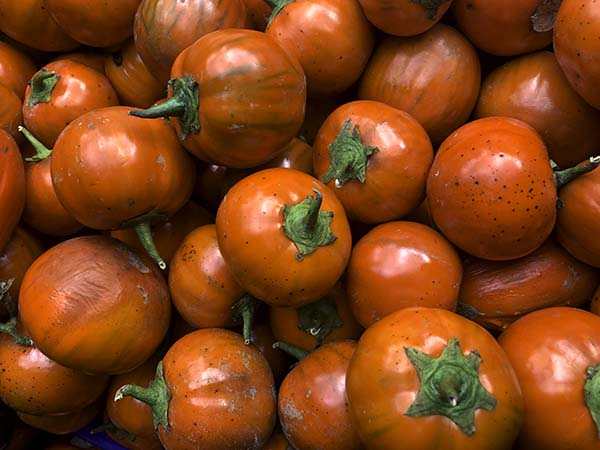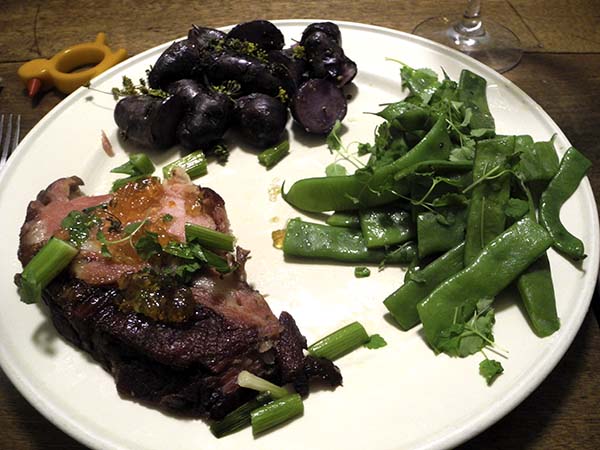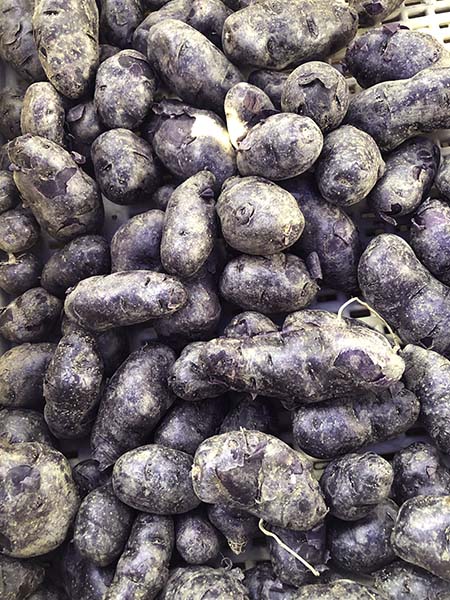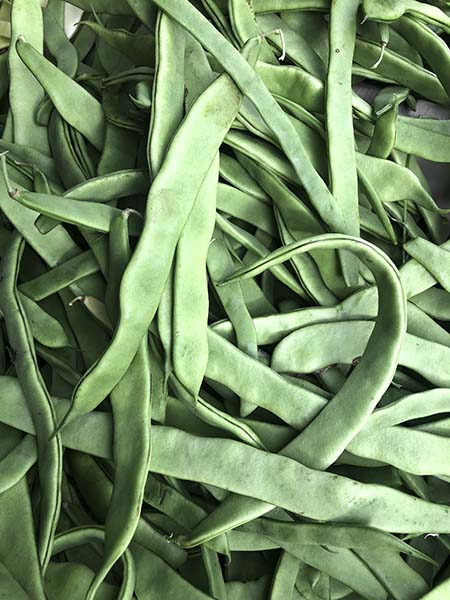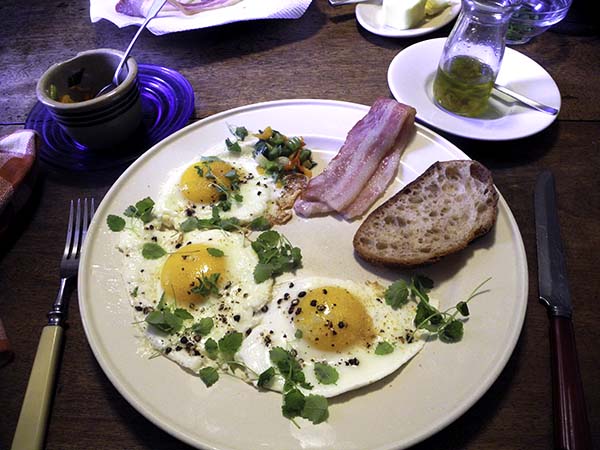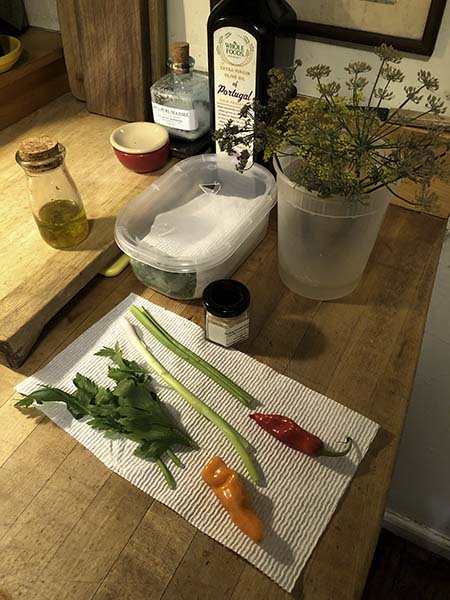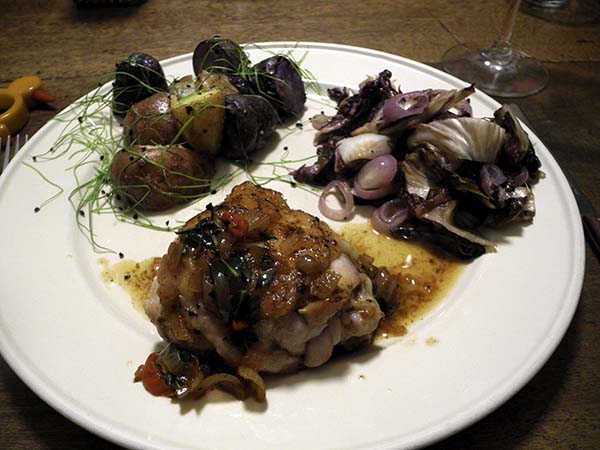
I couldn’t get to Union Square on Wednesday because I had to stay home waiting for the plumbers (a double indignity).
Once I was free (and hundreds of dollars lighter), it was too late to expect to find anything at the Greenmarket fish stall, so I headed down the street toward Eataly Flatiron. Once there I checked around and texted Barry, asking for his preference among 4 of my suggestions, “Luca Donofrio’s fresh ravioli di zucca, a small New York strip steak, chicken thighs, or a duck breast. He didn’t reply immediately, but just as I had narrowed down my own preferences and had come up with chicken, I saw on my phone screen that he had suggested the same.
Chicken it was, and very good chicken, and it turned out to be a happy choice, as it always is.
The preparation was inspired by a great, and quite simple Marc Bitttman recipe, very open to adjustments and elaboration.
And yes, I can now confirm that you can successfully substitute a rosé for a white as a cooking wine.
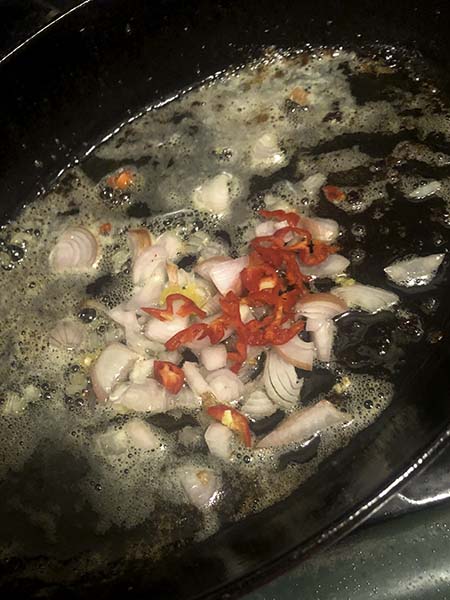
I mostly succeeded in restraining myself from going overboard with the ingredients this time, but I couldn’t resist including one tiny, mostly heatless red chili pepper and one extremely small very hot ur-pepper in the mix that produced the sauce, if only as an experiment.
- two 8-ounce fresh New York State chicken thighs, from Cascun Farms, purchased at Eataly Flatiron, the loose skin of one pinned with 3 toothpicks, seasoned on both sides with local P.E. & D.D. Seafood sea salt and freshly ground black pepper, browned well in two tablespoons or so of Organic Valley ‘Cultured Pasture Butter’ inside a medium oval enameled high-sided cast iron pot, then covered with aluminum foil (it doesn’t have to be a tight seal at all, and it definitely wasn’t) and cooked over medium-low heat, turning occasionally, until the internal temperature is 155-165 degrees, or the juices run clear, which was roughly 15 minutes, transferred to a small oval platter and covered with the foil to keep warm while 3 minced very small round shallots from Lucky Dog Organic Farm, one small chopped red shishito pepper from Alewife Farm, and only one finely chopped small-pea-size yellow Brazil wax pepper from Eckerton Hill Farm were stirred in and allowed to soften before about a third of a cup of rosé wine (an Oregon Willamette Valley rosé, Chris Baker Willamette Valley Rose of Pinot Noir 2018, from Naked Wines] was added to the pot and the heat raised to medium high, until the liquid reduced quite a bit, or until it was a of the consistency of a sauce, a generous amount of chopped pericón (Mexican tarragon) from Quarton Farm was added and stirred in before it was transferred to a glass sauce boat, from which some of it was poured over the chicken, now arranged on plates
- three different kinds of potato (because I didn’t have enough of any one kind), ‘Chieftain’ potatoes from Keith’s Farm,’Pinto’ potatoes from Norwich Meadows Farm, and ‘Purple Peruvian’ potatoes, also from Norwich Meadows Farm, washed, scrubbed, and boiled unpeeled in generously-salted water until barely cooked through, drained, halved, dried in the still-warm large vintage Corning Pyrex Flameware blue-glass pot in which they had cooked, rolled in a little butter, seasoned with salt and pepper and arranged on the plates garnished with micro scallion from Two Guys from Woodbridge
- one medium head of radicchio from Tamarack Hollow Farm, sliced broadly and sautéed until barely wilted inside a large, high-sided tin-lined copper pot with a little olive oil in which one sliced medium tropea onion from Alewife Farm had been allowed to soften, seasoned with salt and black pepper, finished with a splash of white balsamic vinegar and arranged on the plates, with a little more added at the table later, to offset the unusual bitterness of the chicory
- the wine was a French (Loire/Cheverny/Cour-Cheverny) red, Domaine de Montcy Cheverny Rouge 2016, probably from Philippe Wines
- the music was the album, ‘L’homme de genie’, which is Volume 5 from the project, ‘Haydn 2032’, with 3 Haydn symphonies and one by Joseph Martin Kraus, all performed by Giovanni Antonini conducting the Basel Chamber Orchestra
